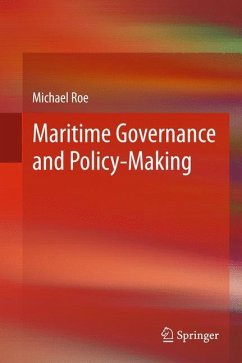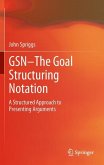A close analysis of the framework of existing governance and the existing jurisdictional arrangements for shipping and ports reveals that while policy-making is characterized by national considerations through flags, institutional representation at all jurisdictions and the inviolability of the state, the commercial, financial, legal and operational environment of the sector is almost wholly global. This governance mismatch means that in practice the maritime industry can avoid policies which it dislikes by trading nations off against one another, while enjoying the freedoms and benefits of a globalized economy.
A Post-modern interpretation of this globalized society prompts suggestions for change in maritime policy-making so that the governance of the sector better matches more closely the environment in which shipping and ports operate. Maritime Governance and Policy-Making is a controversial commentary on the record of policy-making in the maritime sector and assesses whether the reason for continued policy failure rests with the inadequate governance of the sector.
Maritime Governance and Policy-Making addresses fundamental questions of governance, jurisdiction and policy and applies them to the maritime sector. This makes it of much more interest to a much wider audience - including students, researchers, government officials, and those with industrial and commercial interests in the shipping and ports areas - and also of more value as it places the specific maritime issues into their wider context.
Maritime Governance and Policy-Making addresses fundamental questions of governance, jurisdiction and policy and applies them to the maritime sector. This makes it of much more interest to a much wider audience - including students, researchers, government officials, and those with industrialand commercial interests in the shipping and ports areas - and also of more value as it places the specific maritime issues into their wider context.
A Post-modern interpretation of this globalized society prompts suggestions for change in maritime policy-making so that the governance of the sector better matches more closely the environment in which shipping and ports operate. Maritime Governance and Policy-Making is a controversial commentary on the record of policy-making in the maritime sector and assesses whether the reason for continued policy failure rests with the inadequate governance of the sector.
Maritime Governance and Policy-Making addresses fundamental questions of governance, jurisdiction and policy and applies them to the maritime sector. This makes it of much more interest to a much wider audience - including students, researchers, government officials, and those with industrial and commercial interests in the shipping and ports areas - and also of more value as it places the specific maritime issues into their wider context.
Maritime Governance and Policy-Making addresses fundamental questions of governance, jurisdiction and policy and applies them to the maritime sector. This makes it of much more interest to a much wider audience - including students, researchers, government officials, and those with industrialand commercial interests in the shipping and ports areas - and also of more value as it places the specific maritime issues into their wider context.
From the reviews:
"'Maritime Governance and Policy Making' which covers a wide range of topics in the field and provokes in-depth discussions on the failures of maritime governance practice. ... a reference book which illustrates the vision shift on the perception of maritime governance with an easy-to-read and inductive structure. ... The book is also a reference book for beginners in the field which discusses existing policies and the political history of maritime industry." (Okan Duru, The Asian Journal of Shipping and Logistics, Vol. 29 (3), December, 2013)
"'Maritime Governance and Policy Making' which covers a wide range of topics in the field and provokes in-depth discussions on the failures of maritime governance practice. ... a reference book which illustrates the vision shift on the perception of maritime governance with an easy-to-read and inductive structure. ... The book is also a reference book for beginners in the field which discusses existing policies and the political history of maritime industry." (Okan Duru, The Asian Journal of Shipping and Logistics, Vol. 29 (3), December, 2013)










